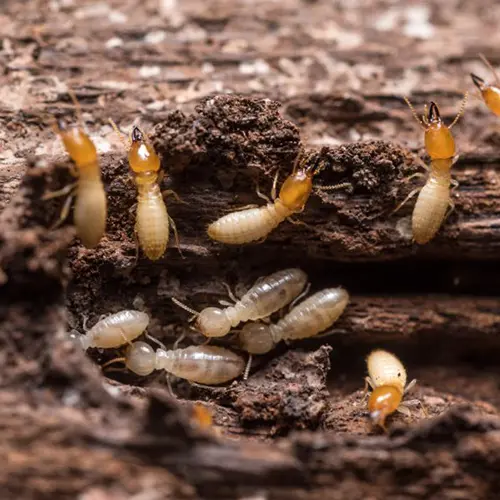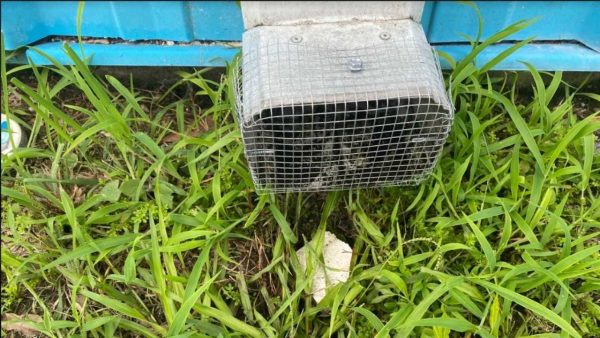Trusted Cockroach Exterminator Port Charlotte to Eliminate Pests Fast
Discover the Significance of Insect Control in Preserving a Healthy Setting and Treatment Techniques

The Duty of Pests in Ecological Communities
Insects, often checked out solely as annoyances, play a diverse function in communities that is important for preserving ecological equilibrium. They contribute dramatically to various ecological processes, including pollination, vitamins and mineral cycling, and bug control. As an example, several insect species, such as bees and butterflies, are important pollinators for a vast array of plants, which subsequently supports biodiversity and food production.
Furthermore, parasites offer as prey for many killers, developing an important web link in food internet. This interdependence guarantees the survival of different varieties and aids regulate populations within communities (Termite treatment Port Charlotte). Decomposer parasites, such as specific beetles and fungi, are crucial in breaking down organic matter, thus enhancing soil and assisting in vitamins and mineral recycling.
Conversely, while pests can be valuable, their overpopulation or intrusion right into non-native atmospheres might interrupt these environmental functions. This complexity underscores the significance of understanding pest dynamics, as reliable parasite monitoring methods need to take into consideration both their environmental roles and potential effect on human tasks. Stabilizing pest presence while minimizing injury is essential for maintaining the stability of ecological communities and making certain farming productivity.
Health Threats Related To Pests
The visibility of bugs in different environments expands beyond their ecological duties, as they also posture considerable health risks to human beings and pets. Numerous parasites, consisting of bloodsuckers, rats, and bugs, are service providers of illness that can have major wellness ramifications. As an example, rodents are known to send hantavirus and leptospirosis, both of which can lead to serious respiratory and kidney issues, specifically.
Bugs such as insects and ticks are well known for spreading vector-borne illness like jungle fever, dengue high temperature, and Lyme disease. These health problems can result in high morbidity and death prices, especially in prone populaces. Additionally, insects like cockroaches and insects can exacerbate allergies and asthma, contributing to breathing troubles in people, specifically those with pre-existing problems.
Additionally, the presence of bugs can result in emotional anxiety and discomfort, impacting general wellness. Contamination of food and surfaces by parasite droppings and remains can cause foodborne diseases, highlighting the relevance of preserving sanitary problems. Comprehending the wellness risks associated with pests is critical in identifying the necessity of effective insect management strategies to guard animal and human wellness.

Advantages of Reliable Bug Control
Effective pest control is necessary for keeping a healthy and safe setting, as it constantly mitigates the numerous threats associated with pest problems. One of the primary benefits of efficient insect administration is the decrease of wellness threats.
In addition, effective pest control safeguards property and frameworks from damages. Lots go to my site of bugs, like termites and woodworker ants, can cause considerable structural damages that might need costly repairs. By proactively handling these invasions, businesses and homeowners can shield their investments.
An additional significant advantage is the improvement of general lifestyle. A pest-free environment adds to psychological well-being and lowers stress linked with invasions. Furthermore, efficient bug control promotes a more secure atmosphere for youngsters and pets, making sure that homes stay shelters devoid of dangerous chemicals and disease-causing microorganisms.
Usual Bug Control Strategies

In the world of bug monitoring, various techniques are utilized to battle problems successfully. These techniques can be extensively classified into 3 major methods: social, mechanical, and chemical controls.
Cultural control involves modifying methods to decrease pest recreation, survival, and facility. This may consist of crop turning, correct sanitation, and habitat control, which collectively develop a setting much less conducive to pest expansion.
Mechanical control utilizes physical approaches to remove bugs (Termite treatment Port Charlotte). Techniques such as catches, obstacles, and vacuums website here are frequently made use of to straight remove pests from an area. This technique is especially reliable for managing rodents and bugs without making use of unsafe chemicals
Chemical control entails the application of pesticides to handle parasites. These materials can be classified right into pesticides, fungicides, and herbicides, each targeting specific kinds of bugs. It is critical to use these chemicals sensibly, sticking to safety guidelines and laws to lessen potential damage to non-target types and the setting.
Each parasite control technique has its advantages and limitations, you could look here and often, an incorporated method incorporating numerous methods generates the very best outcomes in preserving a pest-free atmosphere.
Lasting Bug Monitoring Practices
Lasting bug administration practices include a range of methods designed to minimize ecological effect while successfully controlling parasite populaces. These practices prioritize using eco-friendly methods over chemical pesticides, thus minimizing the risk of damage to non-target species, consisting of valuable insects, wild animals, and humans.
Integrated Parasite Monitoring (IPM) is a foundation of lasting techniques, incorporating biological, social, mechanical, and chemical methods to handle bugs. As an example, organic control entails introducing natural killers or parasites to reduce bug populaces. Social techniques, such as plant rotation and polyculture, interfere with pest life cycles and boost community durability.
Mechanical techniques, such as catches or barriers, can effectively avoid insect access without chemical treatment. Furthermore, preserving healthy and balanced ecological communities with appropriate dirt monitoring, plant health, and biodiversity can naturally alleviate pest concerns.
Education and learning and awareness are essential parts, empowering neighborhoods and people to recognize parasite dangers early and implement precautionary steps. Termite treatment Port Charlotte. By cultivating an all natural strategy that stabilizes parasite control with eco-friendly integrity, lasting pest monitoring techniques not only safeguard structures and plants but also add to a healthier environment for future generations
Conclusion

Comprehending the health dangers associated with insects is critical in acknowledging the necessity of effective pest management techniques to protect human and animal health.
Efficient pest control is essential for keeping a healthy and balanced and secure atmosphere, as it continually mitigates the various risks associated with bug infestations.Integrated Bug Administration (IPM) is a cornerstone of lasting practices, integrating biological, cultural, mechanical, and chemical tactics to take care of parasites. By understanding the duty of pests, recognizing associated health risks, and using diverse therapy techniques, a sustainable approach to pest administration can be accomplished. Integrated Insect Administration (IPM) emphasizes a holistic approach that mitigates harm to advantageous microorganisms while efficiently managing parasite populaces.